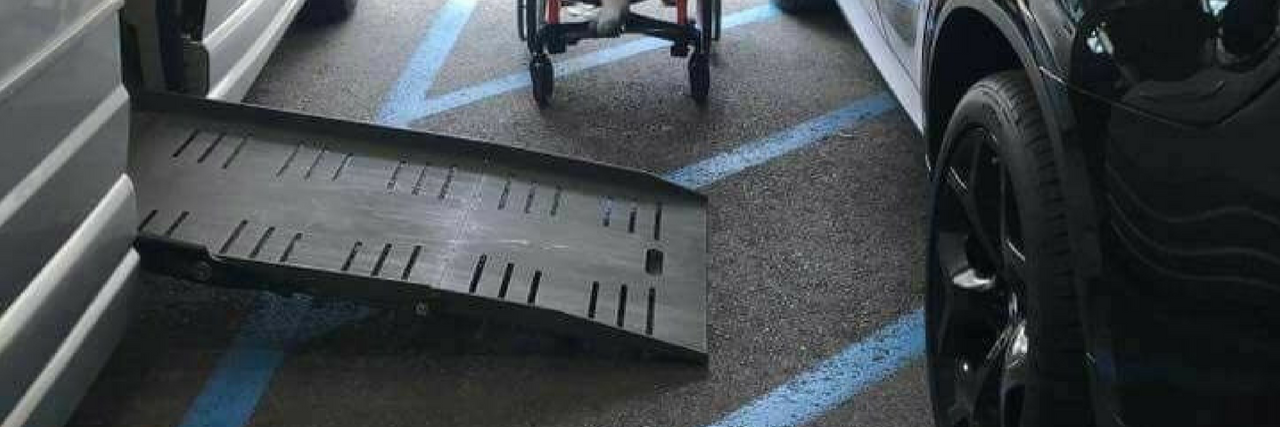Officer Shares Photo to Show Why You Can't Park in Striped Area Next to Accessible Spots
Officer Zack Goins from Mississippi has written citations for people who park illegally in parking spaces reserved for people with disabilities. He also does not hesitate to have cars towed when they park in the loading areas (the striped section next to accessible spots) of these parking spaces, as he is aware this prevents people from using their ramps to access their vehicles.
In an interview with The Mighty, Goins said it is not uncommon for people to not understand why parking in the loading area warrants a citation. He recently had an incident when someone contested their citation. “I towed the vehicle, and they couldn’t figure out why,” he said.
Goins saw a picture on Facebook he feels perfectly illustrates why parking in the loading area is a problem. In it, you can see a young boy unable to get on the ramp leading up to his car. Although Goins does not know who the picture belongs to, he shared it on his page with the status: “So, for anyone who asks why you would get a citation for parking in the striped area in a handicap zone, THIS IS WHY!!!”
Editor’s note: Without consent from the person in the photo, we are only sharing a cropped version to illustrate the hazards of parking in loading areas around accessible spots.
Goins’ status has been shared over 14,000 times.
“The reason there are laws for accessible parking is for this particular reason. The striped area is specifically for those zones,” Goins said. “Motorcycles are the worst.”
Goins said promoting accessibility and making things easier for the disability community starts with being aware. He suggested if a citizen sees someone parking inappropriately, they can cautiously approach the offender, but for safety reasons, it can be best to call the police department who will send someone to investigate. “We will certainly take action,” he said. “Every scenario is different.”
In reference to the picture he shared on Facebook he said, “In that scenario, I would cite them and tow the car.”
Goins has a cousin with cerebral palsy. “It set a fire inside me [growing up],” he said, “if we went somewhere and we could not partake in something because of someone’s ignorance of the situation.”
This, unfortunately, happens quite often. Mighty contributor Chanel White once wrote about this issue when an illegally parked car kept her from going to the mall. She explains how parking like this can be hazardous, even if you do not use a wheelchair:
As a young adult bound to a heavy and quite cumbersome oxygen tank, those coveted spots are the only way I can safely exit my vehicle. Without those spacious yellow lines I cannot maneuver my tank out of the door, leaving me headed home if no spots are readily available. Imagine if I’d come out to you parked next to me in this illicit manner, unable to now get back in my car. Supplemental oxygen tanks only last so long, sir, and I plan my outings around the amount of oxygen I know I have available. The detour you would be forcing me to take honestly puts my health at risk — and that is not acceptable.

